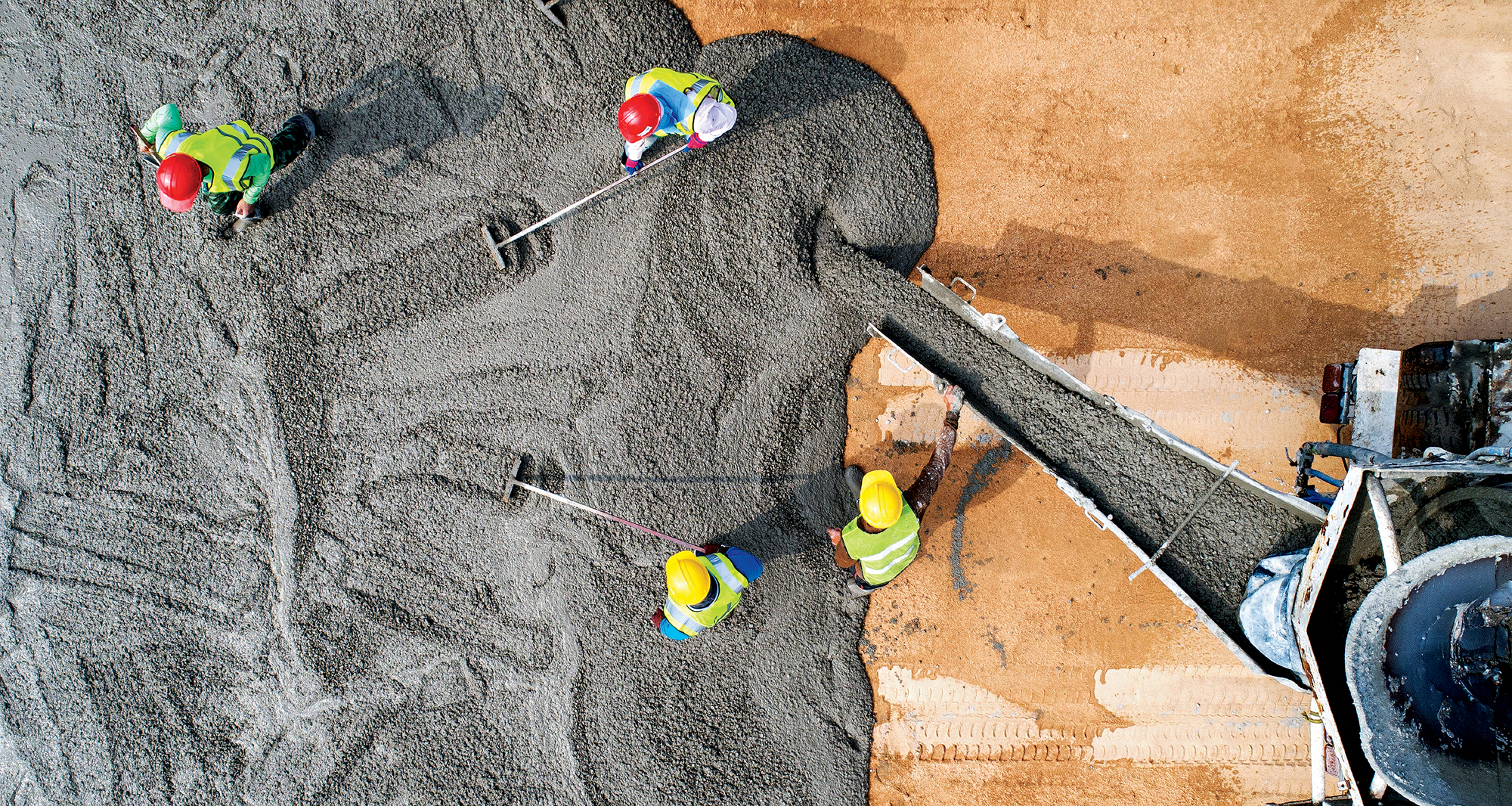Residential and Commercial Concrete Solutions: Customized to Your Job Requirements
Wiki Article
Revealing the Eco-Friendly Advantages of Using Recycled Concrete in Sustainable Building And Construction Practices
In the realm of lasting building techniques, the usage of recycled concrete stands as a pivotal yet usually undervalued source. Beyond its standard applications, recycled concrete offers a myriad of green advantages that expand far past the confines of typical construction products.Environmental Benefits
By including recycled concrete right into construction techniques, there is a considerable reduction in the requirement for new raw products, leading to conservation of natural sources. Furthermore, the usage of recycled concrete decreases the quantity of waste being sent to land fills, thus lowering environmental contamination and reducing the pressure on landfill capabilities (Concrete).

In comparison, recycled concrete has a lower carbon impact as it reduces the demand for brand-new concrete manufacturing. In general, the ecological benefits of using recycled concrete are considerable and play an important role in promoting eco-friendly building and construction methods.
Cost-Efficiency
Attaining cost-efficiency is a critical factor to consider when evaluating the application of recycled concrete in building tasks. Among the essential benefits of making use of recycled concrete is its cost-effectiveness compared to standard concrete. The manufacturing of recycled concrete involves less energy and sources as it utilizes existing materials, minimizing the total project costs substantially. In addition, the availability of recycled concrete locally can additionally decrease transportation expenses, making it a much more cost-effective selection for construction projects.Additionally, making use of recycled concrete can bring about financial savings in land fill costs by drawing away concrete waste from disposal sites. This not only lowers the environmental effect but also gets rid of the expenses connected with waste removal. The longevity and efficiency of recycled concrete are equivalent to traditional concrete, making certain that cost financial savings do not endanger the high quality of the construction.
Resilience and Strength
Taking into consideration the considerable cost-efficiency advantages of using recycled concrete, it is essential to analyze its sturdiness and strength in building and construction applications. Recycled concrete deals comparable, otherwise remarkable, sturdiness and strength residential or commercial properties to traditional concrete. Via developments in handling methods and quality assurance, recycled concrete can fulfill or exceed the efficiency requirements of standard concrete. The process of reusing concrete includes squashing, sorting, and evaluating old concrete to produce accumulations that can be used in brand-new construction tasks. These recycled accumulations can giving satisfying compressive strength, sturdiness, and long-term efficiency.
Waste Reduction
When it comes to utilizing recycled concrete, waste reduction is an essential benefit that contributes significantly to environmental preservation. By including recycled concrete right into building projects, this waste is repurposed and diverted from land fills, minimizing the overall ecological influence of building activities.Additionally, the usage of recycled concrete can lead his response to set you back financial savings for building tasks, as it is often more budget friendly than sourcing and moving new materials - Concrete. In verdict, waste reduction with the application of recycled concrete is a vital element of lasting building and construction practices that benefits both the setting and the pop over to this site construction sector as a whole.
Power Conservation
Energy conservation is an important facet of sustainable building and construction techniques, intending to reduce the general energy usage linked with structure operations and materials production. Significant energy savings are achieved compared to traditional concrete production when it comes to using recycled concrete in construction. The process of producing recycled concrete involves reusing and squashing existing concrete products, which eats much less power than mining, processing, and carrying resources for new concrete production. Additionally, making use of recycled concrete can aid lower the need for virgin aggregate, further reducing the energy-intensive removal and handling of natural deposits.Verdict
Finally, the use of recycled concrete in sustainable building and construction techniques provides numerous ecological benefits, cost-efficiency, durability, toughness, waste reduction, and power conservation. By including recycled concrete right into construction tasks, we can add to an extra lasting and ecologically pleasant future. It is necessary for the construction sector to prioritize making use of recycled materials to help in reducing the ecological impact of building tasks.One of the essential benefits of using recycled concrete is its cost-effectiveness contrasted to traditional concrete.Additionally, the usage of recycled concrete can lead to cost savings in land fill costs by diverting concrete waste from disposal websites. The resilience and efficiency of recycled concrete are equivalent to conventional concrete, making sure that price savings do not jeopardize the top quality of the construction.

Report this wiki page